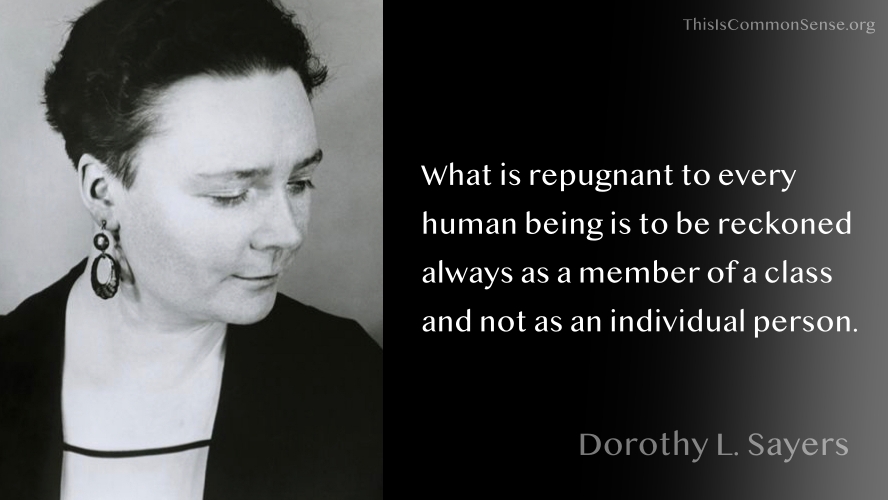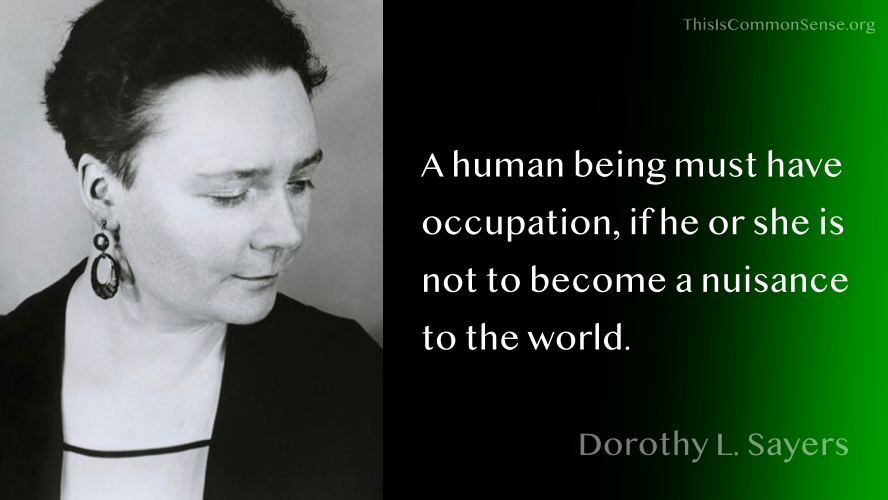What is repugnant to every human being is to be reckoned always as a member of a class and not as an individual person.
Dorothy L. Sayers, Are Women Human? (1938).
Categories
Dorothy L. Sayers


What is repugnant to every human being is to be reckoned always as a member of a class and not as an individual person.
Dorothy L. Sayers, Are Women Human? (1938).

When I used to speak of the lunatic fringe, I didn’t know I was going to be head of it.
Oscar Levant, The Memoirs of an Amnesiac (1965).

A human being must have occupation, if he or she is not to become a nuisance to the world.
Dorothy L. Sayers, Are Women Human? (1938).

Strip away the phony tinsel of Hollywood and you will find the real tinsel underneath.
Oscar Levant, as quoted in Theodor Reik‘s Jewish Wit (1962), p. 104.

The work of art is to dominate the spectator: the spectator is not to dominate the work of art.
Oscar Wilde, The Soul of Man Under Socialism (1891).

If with the literate I am
Dorothy Parker, in Life, (June 2, 1927) p. 13.
Impelled to try an epigram,
I never seek to take the credit;
We all assume that Oscar said it.